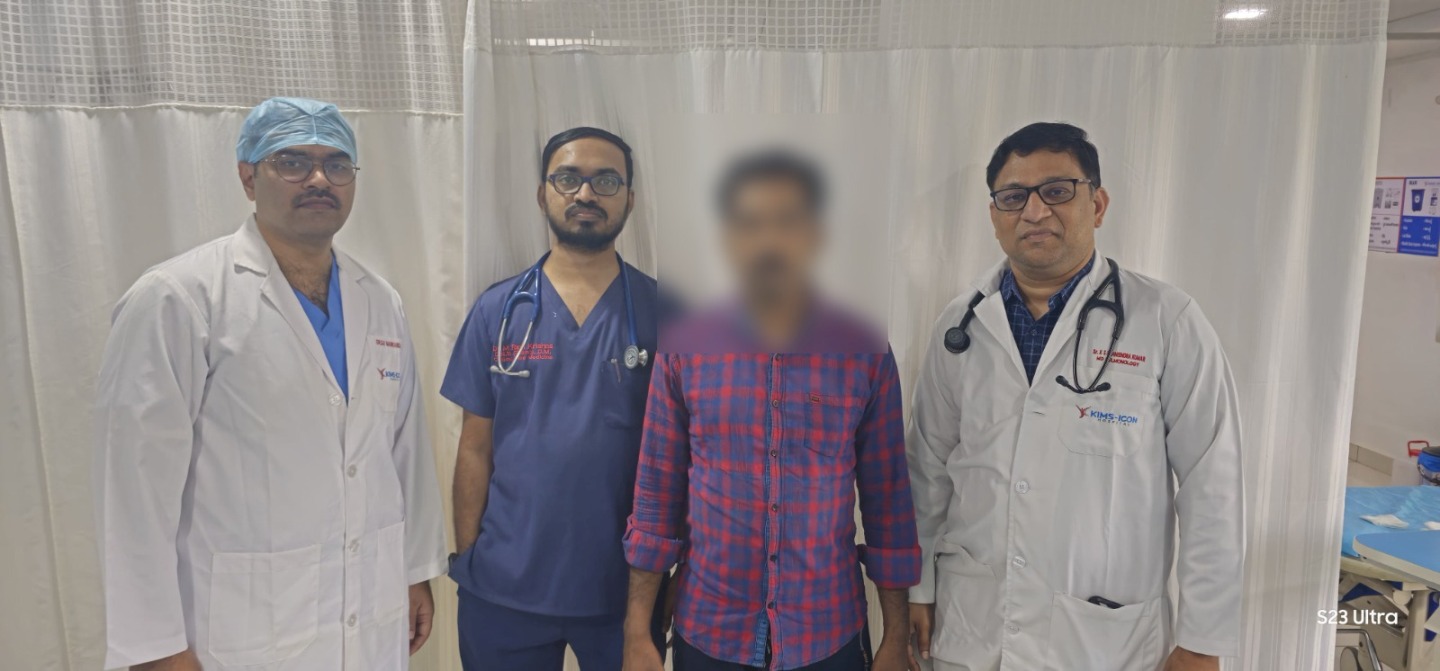In a remarkable medical intervention, doctors at KIMS ICON Hospital, Visakhapatnam, successfully saved the life of a 38-year-old pharma employee who suffered critical poisoning after accidentally inhaling a large amount of hydrogen sulfide (H₂S) gas. The life-saving procedure was carried out using advanced ECMO (Extracorporeal Membrane Oxygenation) support, marking a milestone in emergency critical care for industrial gas poisoning cases.
The patient, who was employed at a pharmaceutical company, reportedly inhaled a high concentration of hydrogen sulfide gas a highly toxic gas known for its characteristic smell of rotten eggs. Following exposure, he collapsed and was rushed to the hospital’s emergency unit in an extremely critical state. On arrival, he showed signs of respiratory failure, unconsciousness, and multiple organ dysfunction.
Hydrogen sulfide is a poisonous gas commonly found in industrial settings and during the cleaning of drainage systems or in natural gas operations. Inhalation in high doses can cause rapid damage to the nervous system and even death within minutes.
Recognizing the severity of the situation, a multidisciplinary team led by Dr. M. Ravikrishna, Lead Consultant – Critical Care & ECMO Specialist, along with Dr. K.S. Phanindra Kumar, Consultant Pulmonologist, and Dr. N. Sai Manikandan, Consultant Cardiothoracic & Vascular Surgeon, immediately intervened. Conventional treatments were deemed insufficient due to the rapid progression of symptoms and the lack of antidote availability locally, prompting the team to initiate VA-ECMO support without delay.
“ECMO acts as a temporary support system by taking over the functions of the heart and lungs, allowing these organs to rest and recover while the toxins are gradually cleared from the body,” explained Dr. Ravikrishna. “The ECMO machine removes blood from the body, oxygenates it externally, and then pumps it back in, ensuring vital oxygen supply to the body even when the lungs and heart are compromised.”
This was the first time ECMO was used for treating a patient with hydrogen sulfide poisoning. After five days of ECMO support, the patient began to show significant signs of recovery. He was then managed in the hospital for an additional 6 days with medication and close monitoring, following which he made a complete recovery and was safely discharged. He was asymptomatic on 3 months follow up.
“This case serves as a strong example of how modern medical technology and timely intervention can turn around life-threatening situations,” said the team at KIMS ICON. “With growing industrial development in cities like Visakhapatnam, awareness and preparedness for such emergencies are crucial. Facilities like ECMO and skilled critical care teams play a vital role in saving lives during such industrial accidents.”
The hospital emphasized the need for enhanced safety protocols in industrial environments and the importance of access to advanced medical interventions like ECMO for managing severe toxic exposures.
